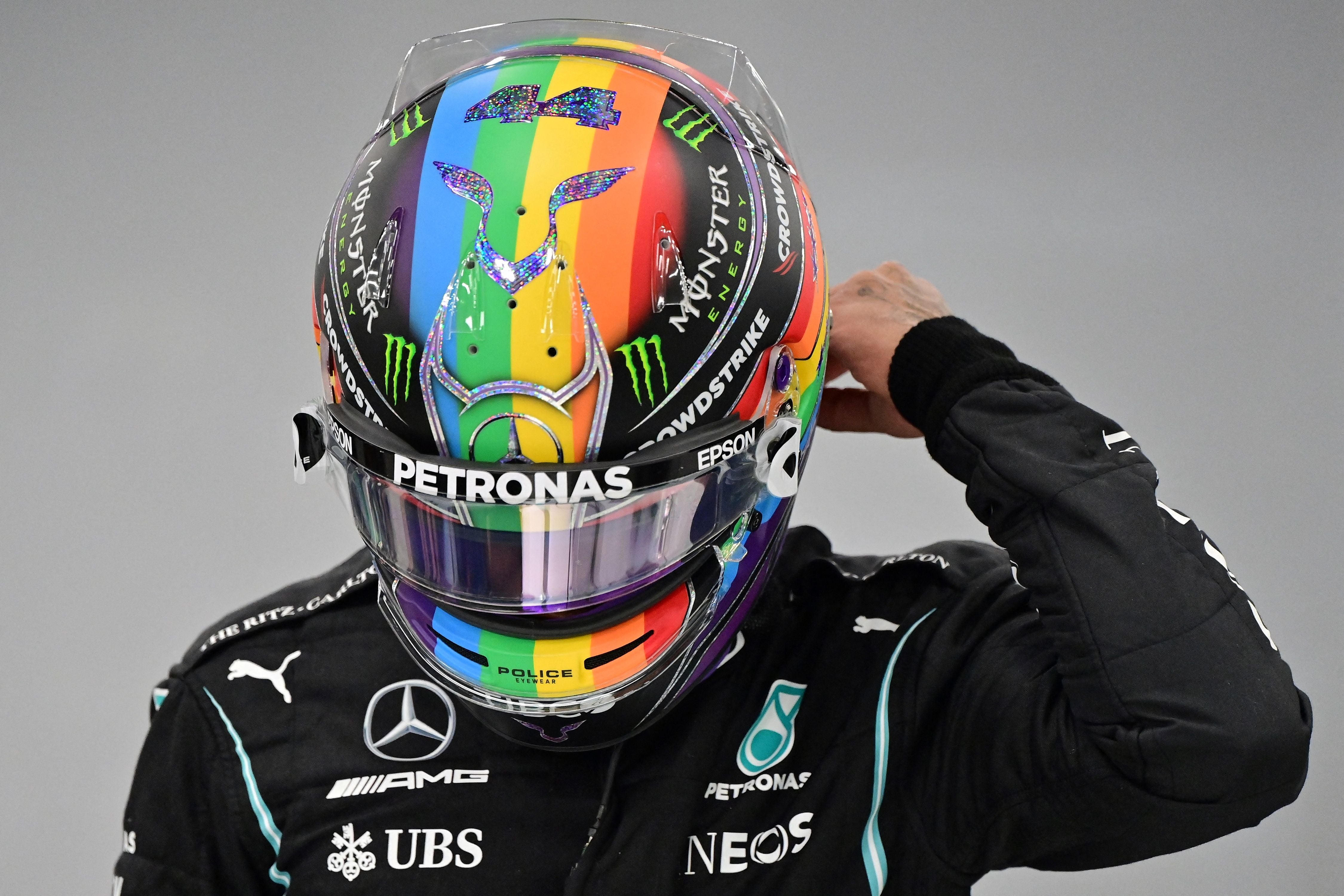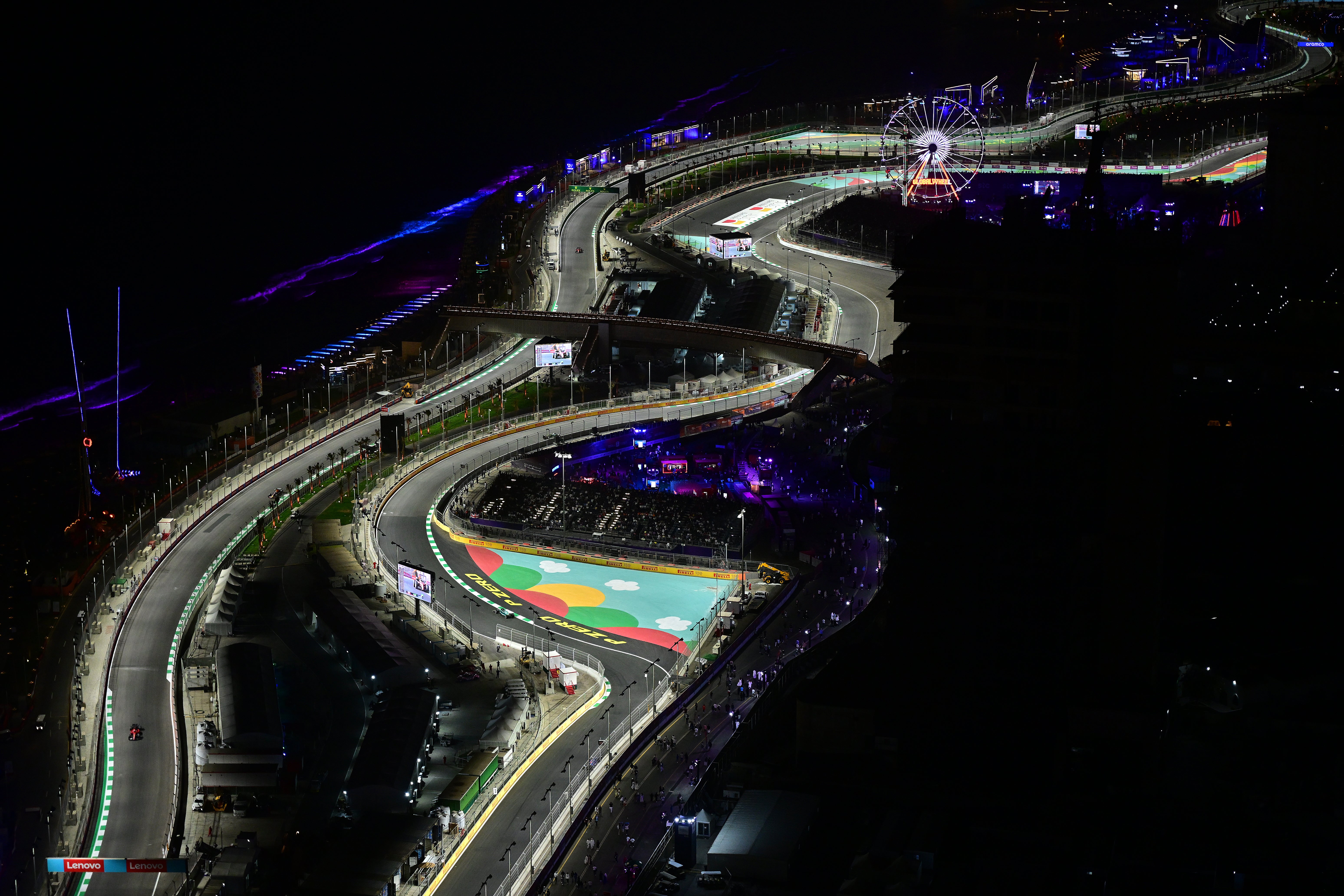Formula 1 accused of ‘enabling violence and bloodshed’ by racing in Saudi Arabia
The brother of a man executed in Saudi Arabia last year has written to F1 boss Stefano Domenicali about the sport “legitimising heinous crimes”
Formula 1 is once again coming under increased scrutiny for staging races in countries with poor human rights records after the brother of a man executed in Saudi Arabia last year insisted the sport’s silence “enables violence and bloodshed.”
A fortnight after staging the opening race of the 2023 season in Bahrain, F1 returns to Jeddah for the Saudi Arabian Grand Prix – a country where there have been 13 executions in the last two weeks.
Last year, 81 men were executed in one day shortly before the grand prix, with 41 from the Shia minority who had taken part in protests calling for greater political participation, according to the United Nations.
One of those men was Mustafa al-Kjayyat and his brother, Yasser al-Khayyat, insists that F1 is being used as a “tool to sportswash Saudi abuses”, in a letter seen by The Guardian addressed to F1 CEO Stefano Domenicali.
“They use the spectacle of this sporting championship to distract from the murder of my brother and hundreds of others,” he wrote. “The grand prix carrying on as normal, without even mentioning the atrocities that have just been committed on that same soil, legitimises these heinous crimes.
“Silence is complicity. It is how the regime gets away with its atrocities and suppresses calls for democratic reforms. If you truly want Formula One to be an agent for change, rather than a tool to ‘sportswash’ Saudi abuses, please end Formula One’s silence.
“This is a regime that silently kills its people; trying, convicting, sentencing and executing them in complete secrecy. The silence of bodies like Formula One enables this violence and bloodshed. Formula One’s partnership with the regime has coincided with an acceleration of executions.”
Seven-time world champion Lewis Hamilton has spoken out in support of LGBTQ+ rights in Gulf countries, including wearing a rainbow helmet for races in Qatar and Saudi in 2021.

Abdullah al-Howaiti, whose family wrote to Hamilton last year about being tortured aged 14 and sentenced to death at 17, will soon hear whether the Saudi Supreme Court has upheld his death sentence.
Maya Foa, director of the human rights group Reprieve, insisted F1’s human rights problem has “never been more glaring.”
“For all the talk of ‘positive values’ and ‘accelerating change,’ Formula One has never seriously engaged with human rights and the way the sport is used to whitewash abuses by some of the world’s most repressive regimes,” Foa says.
“Last year’s Saudi Arabian Grand Prix took place three days after a mass execution and, other than Lewis Hamilton, the drivers, organisers and corporate sponsors barely acknowledged it had happened.
“Since King Salman and his son, Crown Prince Mohammed Bin Salman, came to power in 2015, the Saudi Arabian regime has executed over 1,000 people, including child defendants, pro-democracy protesters and innocent drug mules. Last year there were 147 executions that we know of – the true figure may be higher.
“There have been at least 13 executions in Saudi Arabia in the last two weeks, including Hussein Abo al-Kheir, a Jordanian father of eight whose case had been raised by UN experts and UK MPs.

“Carrying out these executions on the eve of the Jeddah Grand Prix is a brazen display of impunity by the Saudi authorities, confident that the sport and its commercial partners will stay silent, and that the pageantry of F1 will distract from the bloodshed.
“Drivers are being put in the impossible position of wondering how many more will be executed over the four days of qualifying and racing. The sport’s human rights problem has never been more glaring.”
An F1 spokesperson responded: “We take our responsibilities very seriously and have made our position on human rights and other issues clear to all our partners and host countries who commit to respect human rights in the way their events are hosted and delivered. We are proud of all our partnerships and look forward to building on those in the years ahead.”
This year’s race is the third grand prix held at the Jeddah Corniche Circuit, with the 2022 race held despite a missile strike on an oil facility near the track. The drivers were persuaded to race after assurances from F1 and the Saudi government.
Join our commenting forum
Join thought-provoking conversations, follow other Independent readers and see their replies
Comments



Bookmark popover
Removed from bookmarks